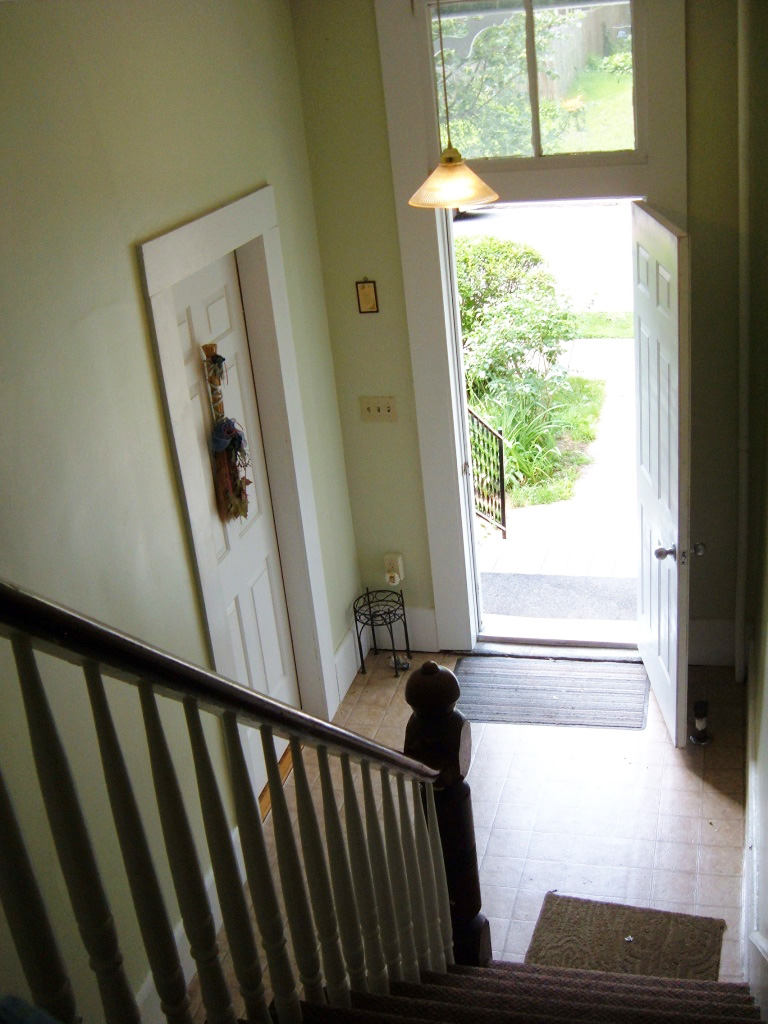Landlords in Profile: Jo Landers
| . Posted in News - 0 Comments
By Eric Weld, MassLandlords, Inc.
Since she first became a landlord about 25 years ago, Jo Landers has learned a lot about the business. And while she has had to learn many landlording lessons the hard way, she says, her business philosophies remain solidly rooted in her background and penchant for helping others.

Jo Landers. Image: cc by-sa jo landers
Landers, who lives in Easthampton, owns several residential and commercial rental properties in Hampden and Hampshire counties. A MassLandlords member since 2015, Landers ran for a seat on the board of directors in 2023, and may run again in the future.
Landers’ modest background and common experience with tenants who sometimes struggle to pay the rent helps inspire her consideration to someday serve on the association’s board. Her administrative interests focus in part on educating tenants (and landlords) on their responsibilities.
“So many tenants have very wrong ideas about what the landlord responsibilities are versus their own,” she says. “I’ve seen things from both perspectives. I’ve been poor and now middle income with some savings. I know what it’s like to struggle. And as a landlord, I want tenants to understand their rights, and their responsibilities, especially first-time renters. It’s important to have a low-income perspective.”

Jo Landers invests a lot of sweat (and blood) equity in her rental properties, including this historic Holyoke multifamily, where she completed many interior renovations herself. Image: cc by-sa jo landers
“A Little Blood in Every Room”
Landers wasn’t necessarily planning to be a landlord back in 1998. But she was a seasoned businesswoman, having run her own accounting business since 1991, and was scouting a suitable investment for a small surplus of cash. When the opportunity presented itself to buy a rental property, she took it.
“While I was getting a haircut, I heard about a multifamily available for purchase in Holyoke,” she recalls, “a two-family with the porch falling off the back.” She took a look at the property, on Walnut Street, not far from the city center. It would need a lot of work, she could see. But she took to the area.
“When I walked the streets and alleys in the neighborhood, I had a good sense of the neighborhood. I could tell that people there were poor, but they were trying to take care of things. You can tell in the alleyway. You could tell it was a kid-friendly neighborhood.”
She put her $8,000 down for the purchase. It was the lowest-priced single house sale in Holyoke that year, she says.
Then the learning began. The building needed deleading, so she procured a deleading loan from the state and hired a lead abatement contractor. “The deleading process was horrendous,” she says. “It was supposed to be six weeks, but it took six months, and I had to pay up front.”
She completed much of the needed renovation work herself. “I bought myself a table saw. Then I got a cell phone, in case I got hurt using the table saw, I could call someone.” She tore down and reinstalled plaster walls. She replaced the flooring with laminate. “I’ve got a little bit of blood in every room,” as she puts it. “Walls and flooring, most of it is about measuring correctly.”
Since that first multifamily, Landers has gone on to purchase another multifamily, two single-families and a commercial building, where she houses her business and leases space to two others.

When Jo Landers bought her first multifamily, she could see it needed a lot of work, she says, but she had a good feeling about it when she walked the family-friendly neighborhood. Image: cc by-sa jo landers
Investing for Retirement
Though she entered the landlording industry from an investment angle, Landers was always interested in low-cost housing. Even now, after a quarter century as a landlord, she considers her rental properties as more of long-term investments than as income generators.
“I got into this for retirement,” she explains. “I’m not trying to max out rents, I’m more interested in long-term. All my rents are 20% or more below market. It kills me when I hear the greedy landlord stuff.”
Landers enrolled at Smith College in 1989, in the school’s Ada Comstock Scholars Program for nontraditional-aged students (disclosure: this writer was an employee at Smith College until 2022), hoping to design her own major. It’s a provision the college allows for students who want to study a subject with some focus outside the offered curriculum. Landers had completed a degree in graphic design at Northern Essex Community College, in Haverhill, and hoped to study building design at Smith.
Instead, she earned her bachelor’s degree in computer science, graduating in January 1995. She has built her accounting business, and now employs two other employees.
In 2008, Landers saw another opportunity to buy a two-family rental property on Oak Street and snapped it up. In 2014, she purchased a house two doors down from her first rental. In 2020, she bought the building in which her accounting business is located, and took over the commercial rents for two other businesses there, Smith Glass and Night Owl Tattoo.
And, in February 2023, Landers bought a house for the purpose of renting to a family she knew that was looking for a place to live.
Relating with Low-Income Renters
Landers’ style of landlording may not be the way many in the business would go about it. But her business style is partly dictated by her empathy for other people living through lean financial times.
She worked to pay her way through community college, and later through Smith.
Having walked in the financial shoes of some of her tenants helps inspire her compassion for those for whom she provides housing, even when it’s not easy.
“It’s getting harder and harder to rent properties,” says Landers, “especially to be concerned about your tenants.”
She works with her renters when they have difficulties paying rent. She’s applied for rental assistance three times on behalf of one of her tenants. And when she had to raise some rents this year to help offset spiking property taxes, she factored in the fixed income of one of her tenants in setting the new rate.
A Vital Landlord Resource
Landers first joined MassLandlords in 2015 when she worked as an accountant and property manager for a large complex in Northampton.
“I joined because I could see MassLandlords materials were good,” she says. “I realized MassLandlords was covering a lot of stuff,” through live events and published materials, “that couldn’t be covered by books – authorization forms, and other details regarding forms. It’s a great resource for someone who can do self-study.”
It’s also about being part of a professional community, Landers says. “Being part of MassLandlords has provided valuable professional information and training as well as a place to say, ‘are you kidding me?’, and have people understand what you’re talking about.”
Also, Landers has appreciated MassLandlords’ policy work and lobbying on behalf of the industry. “Then there’s the bigger picture issues, like zoning reform, eviction sealing, eviction moratoriums, etcetera,” she says, “the fact that it takes three months for RAFT, three months for evictions.”
Learned Advice
Now that she’s been at it for a quarter century, Landers is eyeing a possible business exit strategy. She still carries mortgages for all but one of her properties. “I’m starting to think about rent-to-own arrangements,” she says. “I may not want to deal with court cases, flooded basements, etc., for much longer. My long-term goal is to sell to my tenants if they’re interested in buying.”
Her parting advice for other landlords reflects her attitudes about respecting her tenants and relating with their experiences. “Treat your tenants like you would want to be treated,” she recommends, “while maintaining professional boundaries.”
She also offers some hard-won practical advice regarding renovations and tenant screening. “Assume any repair estimate will end up costing 20% more, so budget accordingly. That way, you may be pleasantly surprised instead of scrambling for funds.”
And when it comes to prospective tenants? Screen thoroughly, she advises. “When you have good tenants, it’s a great experience,” she notes. “But when you have bad ones, it’s hell.”




